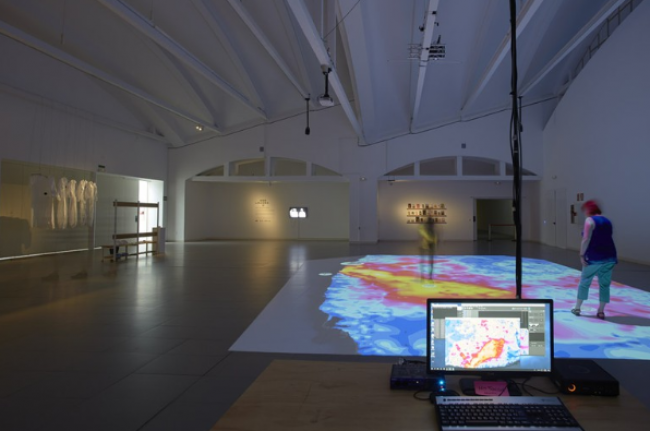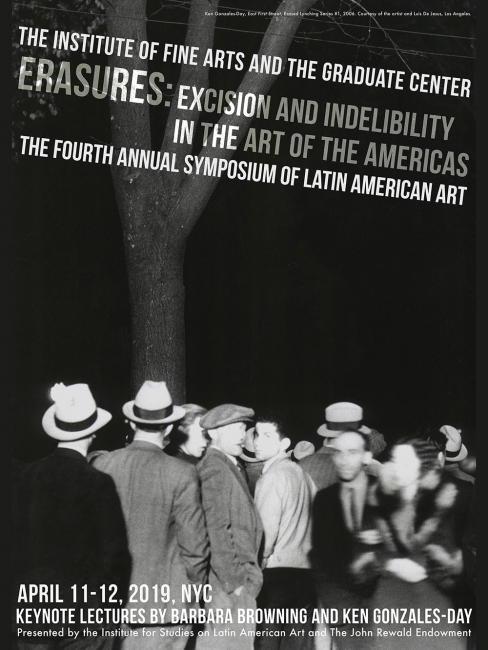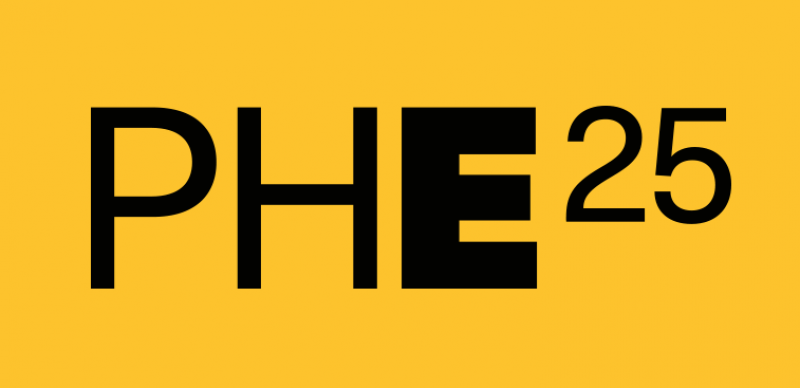Descripción del Premio
Institute of Fine Arts, New York University
The Graduate Center, City University of New York 11–12 de abril de 2019
Plazo para postular: 21 de enero de 2019
Borraduras: Escisión e indelebilidad en el arte de las Américas
Cuarto Simposio Anual de Arte Latinoamericano del Graduate Center y el Institute of Fine Arts: presentado por el Institute for Studies on Latin American Art (ISLAA) y el John Rewald Endowment.
CONVOCATORIA
El Institute of Fine Arts, New York University; el Graduate Center, City University of New York; y el Institute for Studies on Latin American Art (ISLAA) se complacen en convocar el Cuarto Simposio Anual del Arte Latinoamericano. “Borraduras: Escisión e indelebilidad en el arte de las Américas” se llevará a cabo en la ciudad de Nueva York el 11 y 12 de abril de 2019. El simposio contará con Barbara Browning y Ken Gonzales-Day como conferencistas principales.
¿Qué puede y qué no puede borrarse? Esta pregunta surge cuando se destruyen monumentos, cuando se desvanecen artefactos culturales, o cuando los rostros de desparecidos políticos no dejan de interrogar la violencia y la corrupción gubernamentales. Si bien el incendio reciente del Museu Nacional en Rio de Janeiro ocasionó la pérdida devastadora de aproximadamente veinte millones de objetos, su impacto fue mucho más allá de la destrucción física. Marina Silva, ex-ministra de Medio Ambiente en Brasil, llegó a llamar al incendio “una lobotomía a la memoria brasileña”. Por otro lado, el octubre pasado la artista israelí Yael Bartana demostró el poder del vacío con su obra Monumento a la ausencia, en la cual huellas dejadas en cemento dieron fe de vidas borradas y conmemoraron el quincuagésimo aniversario de la masacre de Tlatelolco en Ciudad de México. En estos ejemplos, así como en innumerables otros, se observa que la escisión—deliberada o inconsciente—de objetos e historias puede ser tanto destructiva como productiva, abrir o curar heridas, ocultar o revelar la memoria, y desafiar y reforzar la permanencia de lo indeleble.
Tragedias como las señaladas arriba y las acciones posteriores que se hacen para afrontarlas dan forma al tema del simposio de este año. La borradura se suele entender como una obliteración del contenido o una eliminación de todos los rastros, muchas veces a la fuerza. Sin embargo, como demuestran los mapas quemados que Horacio Zabala hizo en los setentas o la Cordillera (1972) borrada de Jacques Bedel, las artes plásticas poseen la sorprendente habilidad de demostrar resiliencia ante el vacío del contenido visible. La borradura puede manifestarse a través de estrategias de eliminación, escisión, limpieza, o supresión como práctica estética, o bien puede surgir a partir de las condiciones de los medios, como por ejemplo el carácter efímero de las obras site-specific y performáticas. También puede invocarse por medio de las omisiones cartográficas o en el archivo, así como resultado de los desastres provocados por el hombre, por la naturaleza, o la iconoclasia. Además, tampoco hay que olvidar los potenciales productivos y emancipadores de la borradura. A partir de las variadas e interdisciplinarias contribuciones
de un grupo diverso de investigadores, el simposio promoverá conversaciones sobre los riesgos, las recompensas y los saberes que emergen cuando la ausencia entra en contacto con las realidades sociopolíticas. Más allá de las consideraciones físicas y espaciales, debemos interrogar a la historia y al vacío que deja el silencio histórico, enfatizando para ello lo callado, lo no dicho y lo invisible.
Ponentes interrogarán el papel de las borraduras en la cultura visual de las Américas, provocando debates que abarcan distintas geografías, temporalidades y disciplinas. Posibles temas podrían incluir:
- Ejemplos de producción cultural indeleble, tanto arraigados en como separados de objetos materiales
- La erradicación de las fronteras geográficas en mapas y otros registros
- Iconoclasia, ya sea como destrucción o como catarsis
- Estrategias museológicas e institucionales para enfrentar lagunas en colecciones y archivos
- Materiales efímeros y conservación de objetos impermanentes
- La vulnerabilidad del conocimiento y la expresión plasmados en prácticas corporales, no-
textuales, o producidas en un lugar y tiempo específicos
- El silencio y la pausa en formas artísticas que usan texto y sonido
- El rechazo a ser documentado y la agencia de elegir ser olvidado
- La destrucción intencionada del (propio) trabajo como acto artístico
- La elisión y disolución de las identidades raciales por el mestizaje y otros discursos
- Omisiones—con o sin intención—de los cánones de la historia del arte (por ejemplo, latinx,
caribeño, LGBTQI, de personas discapacitadas, o de otras comunidades marginadas).
Invitamos a estudiantes actuales de posgrado, graduados recientes e investigadores emergentes a postular, especialmente los que residen en América Latina. Temas de todas las épocas históricas del arte latinoamericano / latinx / chicanx / y caribeño (precolombino, colonial, moderno, y contemporáneo), así como campos fuera de la historia del arte son bienvenidos, siempre y cuando se fundamenten en material visual (por ejemplo, los estudios del cine y de los medios, los estudios latinoamericanos y latinx, la cultura visual y la historia). Los resúmenes se aceptarán en inglés, español y portugués.
Para postular, por favor envíe un resumen de hasta 300 palabras a symposium@islaa.org antes del lunes 21 de enero de 2019. Los solicitantes serán notificados sobre su aceptación el lunes 11 de febrero de 2019. El tiempo límite para las ponencias será de 20 minutos, y habrá tiempo adicional para conversación. En la postulación, indique su afiliación institucional actual y desde dónde viajará, así como los idiomas que habla. Es posible que haya financiación limitada disponible para ayudar a cubrir algunos gastos del viaje.
Este simposio recibe generosa financiación del Institute for Studies on Latin American Art (ISLAA) y el John Rewald Endowment. El evento es coordinado por los profesores Edward J. Sullivan, Helen Gould Sheppard Professor in the History of Art del Institute of Fine Arts; Anna Indych-López, Professor of 20th-Century Latin American and Latinx Art del Graduate Center; y Katherine Manthorne, Professor of Modern Art of the Americas del Graduate Center. El simposio está organizado por los candidatos a doctores Brian Bentley, Madeline Murphy Turner y Ana Cristina Perry, y los estudiantes de doctorado Francesca Ferrari, Sonja Gandert y Tie Jojima.
(ENG)
Institute of Fine Arts, New York University
The Graduate Center, City University of New York
April 11–12, 2019
Deadline: January 21, 2019
Erasures: Excision and Indelibility in the Art of the Americas
The Fourth Annual Symposium of Latin American Art at the Graduate Center and the Institute of Fine Arts: Presented by the Institute for Studies on Latin American Art and the John Rewald Endowment.
CALL FOR PAPERS
The Institute of Fine Arts, New York University; The Graduate Center, City University of New York; and the Institute for Studies on Latin American Art are pleased to announce the Fourth Annual Symposium of Latin American Art. “Erasures: Excision and Indelibility in the Art of the Americas” will be held in New York on April 11 and 12, 2019. The symposium will include keynote lectures by Barbara Browning and Ken Gonzales-Day.
What can and cannot be erased? This question emerges when monuments are destroyed, cultural artifacts vanish, or the faces of the disappeared continue to interrogate government violence and corruption. Though the recent fire at the Museu Nacional in Rio de Janeiro resulted in the devastating loss of approximately twenty million objects, the impact goes beyond physical destruction. Marina Silva, Brazil’s former Minister of the Environment, went so far as to call the fire a “lobotomy of the Brazilian memory.” Alternatively, this past October Israeli artist Yael Bartana demonstrated the power of the void with her Monumento a la ausencia, in which footprints left in cement attest to lives erased and commemorate the fiftieth anniversary of the Tlatelolco Massacre in Mexico City. Observable in these examples as well as countless others, is that the excision—willful or unwitting—of objects and histories can be both destructive and productive, open and heal wounds, obfuscate and expose memory, and challenge and reinforce the permanence of indelibility.
Tragedies such as those noted above and subsequent actions to confront them shape this year’s symposium theme. Erasure is commonly understood as an obliteration of content or removal of all traces, often forcefully. And yet, as demonstrated by Horacio Zabala’s burned maps from the 1970s or Jacques Bedel’s erased Cordillera (1972), visual art maintains an uncanny ability to demonstrate resilience in the void of visible content. Erasure can manifest through strategies of elimination, cleansing, or effacement as aesthetic practice, or it might instead emerge in issues surrounding medium, as in the ephemerality of sitespecific or performative work. It can likewise be invoked through cartographic, historiographic, or archival omissions, or as a result of natural and man-made disasters or iconoclasm. Yet it is imperative not to neglect erasure’s productive and emancipatory potentials. Through broad and interdisciplinary contributions from a diverse group of scholars, the symposium will promote conversations about the risks, rewards, and knowledge that arise when absence comes into contact with socio-political realities.
Beyond physical and spatial considerations, we must also interrogate history and the void that is left by historical silence, highlighting the unsaid, the unspoken, and the invisible.
Symposium panelists will interrogate the role of erasures in the visual culture of the Americas, provoking discussions that span geographies, temporalities, and disciplines. Possible topics may include:
- Examples of indelible cultural production, both entrenched in and detached from material objects
- Eradication of geographical borders from maps or other records
- Iconoclasm, either as destruction or catharsis
- Museological and institutional approaches to gaps in collections and archives
- Ephemeral materials and the conservation of impermanent objects
- The vulnerability of knowledge and expression enshrined in site- and time-specific, embodied, and non-textual practices
- Silence and pause in text- and sound-based artistic forms
- The refusal to be recorded and the agency of choosing to be forgotten
- The intentional destruction of (one’s own) work as an artistic act
- Elision and dissolution of racialized identities through mestizaje and other discourses
- Intentional or unintentional omission from canons of art history (e.g. art from Latinx, Caribbean, LGBTQI, disabled, or other marginalized communities)
Current graduate students, recent graduates, and emerging scholars are invited to apply, especially those based in Latin America and the Caribbean. We welcome topics from all historical periods of Latin American / Latinx / Chicanx / and Caribbean art (e.g. pre-Columbian, Colonial, Modern, Contemporary), as well as fields outside the realm of Art History, but grounded in visual material (e.g. Cinema and Media Studies, Latin American and Latinx studies, Visual Culture, History). Abstracts will be accepted in English, Spanish, and Portuguese.
To apply, please submit an abstract of up to 300 words to symposium@islaa.org by Monday, January 21, 2019. Applicants will be notified of their acceptance by Monday, February 11, 2019. Presentations will be limited to 20 minutes, with additional time for discussion. In your application, please indicate your current institutional affiliation and where you will be traveling from, as well as the languages you speak. Limited funding may be available to assist with travel expenses.
This symposium is generously funded by the Institute for Studies on Latin American Art (ISLAA), and the John Rewald Endowment. It is coordinated by Professors Edward J. Sullivan, Helen Gould Sheppard Professor in the History of Art at the Institute of Fine Arts; Anna Indych-López, Professor of 20th- Century Latin American and Latinx Art at The Graduate Center; and Katherine Manthorne, Professor of Modern Art of the Americas at The Graduate Center. The symposium is organized by current PhD candidates Brian Bentley, Madeline Murphy Turner, and Ana Cristina Perry, and PhD students Francesca Ferrari, Sonja Gandert, and Tie Jojima.

Creación, 14 dic de 2018
Residencias, arte emergente e investigación, las claves de los últimos premios convocados
Por PAULA ALONSO POZA
Hemos seleccionado trece premios vigentes en España, Chile, Argentina, Brasil y Estados Unidos. Hay convocatorias de pintura, fotografía y videoarte, así como becas y residencias enfocadas a la creación e ...

Formación. 11 abr de 2019 - 12 abr de 2019 / Institute of Fine Arts - New York University / Nueva York, New York, Estados Unidos

Exposición. 30 abr de 2025 - 14 sep de 2025 / Varios espacios de Madrid y otras ciudades españolas / Madrid, España

Formación. 08 may de 2025 - 17 may de 2025 / Museo Nacional Centro de Arte Reina Sofía (MNCARS) / Madrid, España